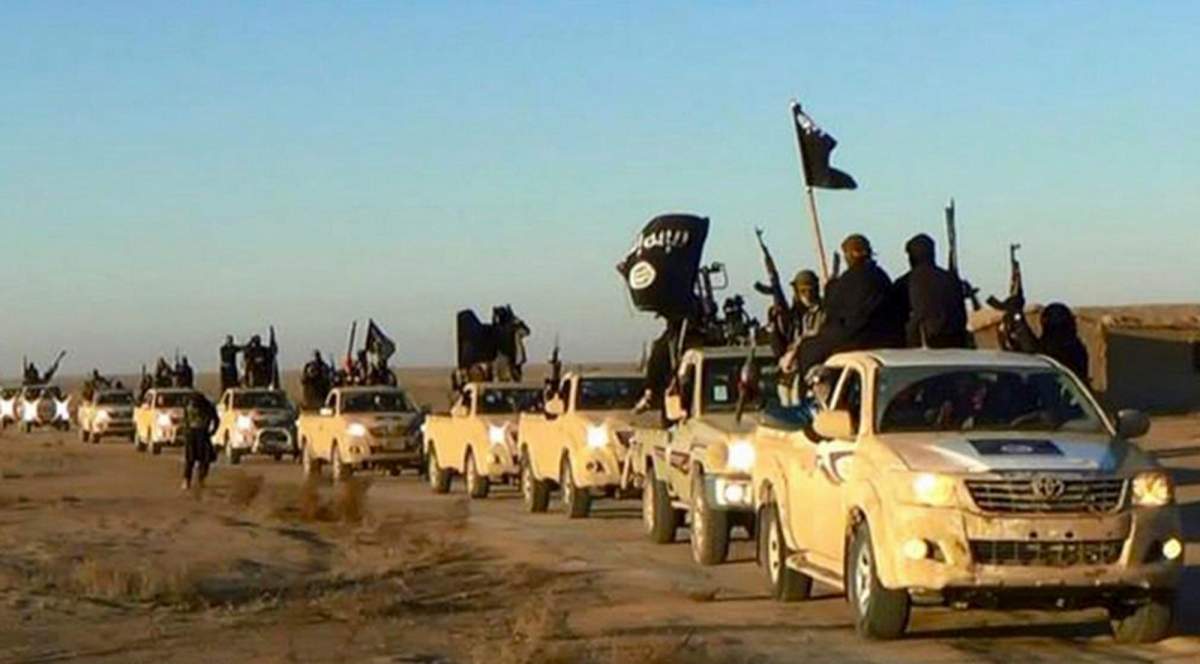A mechanic who came to Canada in 2015 has been found complicit in crimes against humanity for repairing vehicles for the so-called Islamic State, Global News has learned.

Before arriving in Canada and claiming refugee status, the Lebanese national made several trips to Syria to work on ISIS military vehicles and also supervised other ISIS mechanics.
As such, he made a “knowing and significant contribution to ISIS,” the Refugee Appeal Division ruled, noting the terror group needed his high-level expertise in auto electrical systems.
Vehicles in good working order were “vital to the success of ISIS,” and were used for suicide bombings and combat, the panel wrote in a 23-page decision handed down in Montreal.
The ruling means he is ineligible for refugee status, but federal officials would not say if he was detained or had been deported. Even his name was removed from the decision.
His lawyer declined to comment.
The case is a rare confirmation that a refugee claimant who successfully entered Canada had been involved with ISIS, although his past was quickly detected through security screening.
The Canadian embassy in Beirut approved his visa on May 5, 2015 after his wife’s sister, who lives in Canada, sent a letter of invitation. He made a refugee claim in September 2015.
WATCH: U.S.-backed Syrian forces declare victory over Islamic State

Three months later, federal officials intervened in his case, arguing he was disqualified from seeking refugee status because he was complicit in the crimes of ISIS.
The Immigration and Refugee Board agreed, and the decision was recently upheld by Patricia O’Connor of the Refugee Appeal Division, who rejected his claim that he had only worked for ISIS briefly and under duress.

Get daily National news
According to the decision, the man was employed as a mechanic in Zahlé, a Lebanese city close to the Syrian border, when a customer asked him to repair vehicles at a location 30 to 40 minutes away.
He was eventually taken during the night to a hangar in a Sunni area where he was patted down for weapons. A Christian, he was forced to remove his cross and his cell phone was taken away.
Inside the hangar were 15 to 20 vehicles of the type ISIS used. When he touched one vehicle, it was still wet with blood.
Foreigners with long beards who spoke with Syrian or Iraqi accents were installing metal armor on jeeps and trucks that had no licence plates.
The vehicles had been repainted and fitted with metal bars to reinforce them “for military conflict,” according to the decision, which said he knew on his first visit that he was involved with ISIS.
Armed men escorted him repeatedly to the hangar to work on vehicles, and on three occasions he was taken across the border to Syria to do repairs. He was close enough to the fighting to see shelling.
“While ISIS had its own mechanics, he was needed to fix vehicles with problematic issues that no one else could repair,” the decision read. “He also supervised other mechanics and gave instruction on how to repair the vehicles which were used for military purposes.”
He was paid “a lot of cash,” the IRB said. “He said that they treated him well, paid him generously and trusted him to the extent that he was brought to ISIS locations in Lebanon and Syria.”
At one point, a Chinese visa was placed in his passport and he was told he was being sent to China to acquire materials, since ISIS thought “no one would suspect that a Christian would import things on their behalf.”
But the Lebanese armed group Hezbollah found out what he was doing and approached him at work, offering $1,000 a night to spy on ISIS. He said Hezbollah also threatened him.
He ended his involvement with ISIS in May 2015 and came to Canada. While he said he had no other option but to work for ISIS, the IRB rejected that.
“He returned voluntarily over and over again to work on ISIS vehicles because he did not flee or attempt to flee ISIS,” the Refugee Board wrote in its decision.
“Instead of fleeing, he returned at least four to six more times to work for ISIS before he left the country. He returned to work for ISIS even when he touched blood in the vehicle and knew it was ISIS.”
The Canada Border Services Agency is also trying to deport a Jordanian who came to British Columbia and obtained refugee status, but in 2015 began posting ISIS propaganda online.










Comments
Want to discuss? Please read our Commenting Policy first.